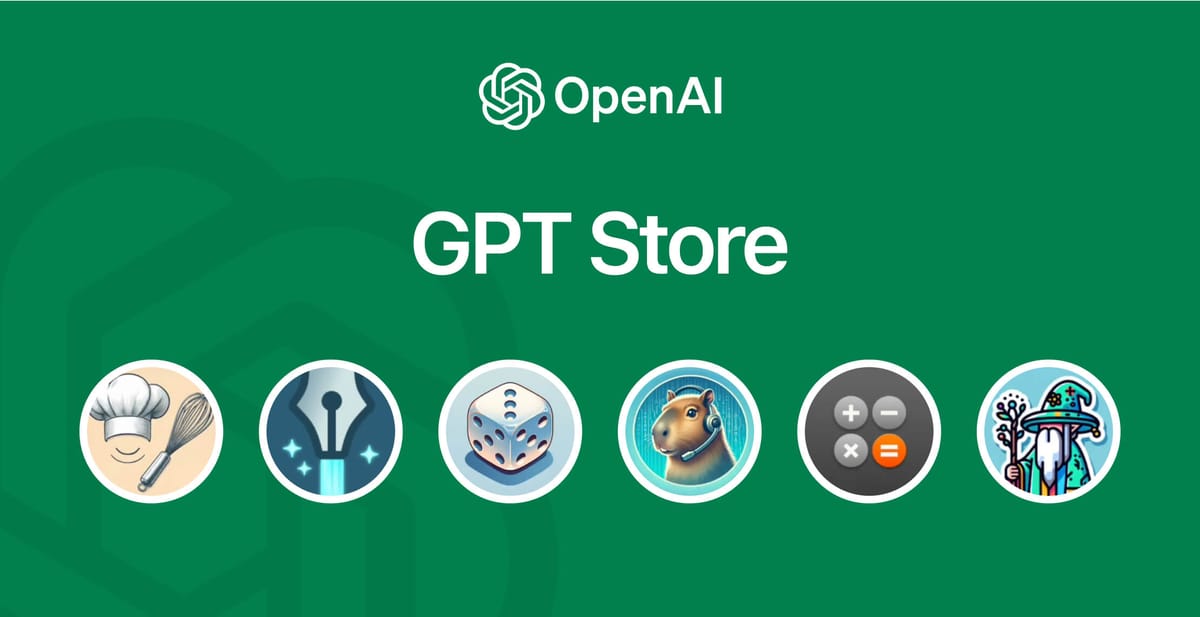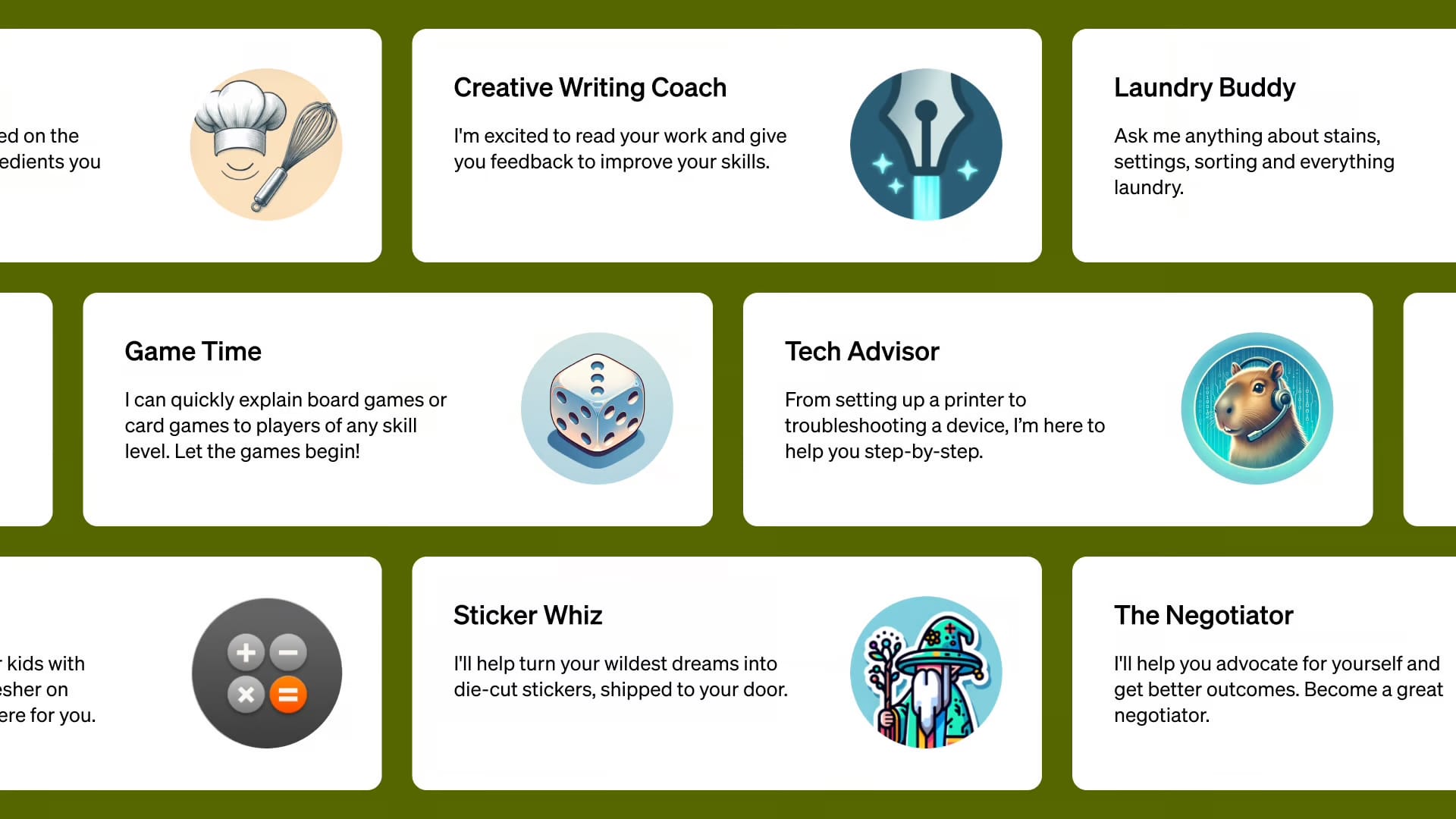
OpenAI has announced that it is pushing back the release of its highly-anticipated GPT Store marketplace to early next year.
The delay comes just one day after ChatGPT marked one year since it was released as a "low-key research preview" to the public. The popular conversational AI assitant now boasts more than 1.7 billion users.
At their inaugural DevDay last month, OpenAI unveiled GPTs, a new feature that lets users easily build and share customized versions of ChatGPT for specific purposes. Through a no-code interface, anyone could create GPTs to serve specific niches or share their expertise without needing technical skills. OpenAI described it as an app store-like marketplace where the best community-created GPTs would be highlighted and creators could potentially monetize their bots.

However, in an update to builders this week, the labs said it is now targeting an early 2024 rollout. “While we had expected to release it this month, a few unexpected things have been keeping us busy!” the company stated.
Over the last two weeks, the company has had to navigate a major leadership crisis that was set in motion when the board unexpectedly fired CEO Sam Altman. The tulmultous situation saw the majority of employees threatening to leave the company, multiple interim CEOs being appointed, and ultimately the majority of the board resigning. Yesterday Sam Altman was officially reinstated as CEO, Greg Brockman as President and Mira Murati as CTO.
Nonetheless, the company says the GPT Store remains firmly on its roadmap. It also hinted at impending upgrades for ChatGPT itself in the near future.
As OpenAI continues working to prepare the GPT Store, builder feedback has already directly informed impactful changes to the GPT framework. Most recently, the company updated configuration interfaces to simplify testing customized actions, enabled one-click debugging for previewing extensions, and granted support for multiple domains to expand functionality. Additionally, in response to transparency questions around file uploads, OpenAI made the Code Interpreter feature that enables downloading user-submitted data opt-in by default. It also added clearer messaging around this permission, erring on the side of security and privacy.
The postponement of the marketplace launch may frustrate creators eagerly awaiting the chance to share and potentially profit from their GPT creations. But OpenAI emphasised that it remains committed to empowering users to shape AI and involve the community in critical decisions about its development.
“We designed GPTs so more people can build with us,” the company stated last month. “Involving the community is critical to our mission of building safe AGI that benefits humanity...By broadening the group of people who decide 'what to build' beyond just those with access to advanced technology it's likely we'll have safer and better aligned AI.”
For now, interested users can still build their own GPTs via OpenAI’s recently introduced creation tools. They just cannot yet share them in a public marketplace. As the field continues evolving rapidly, many eyes will be on what’s next for OpenAI and ChatGPT.

